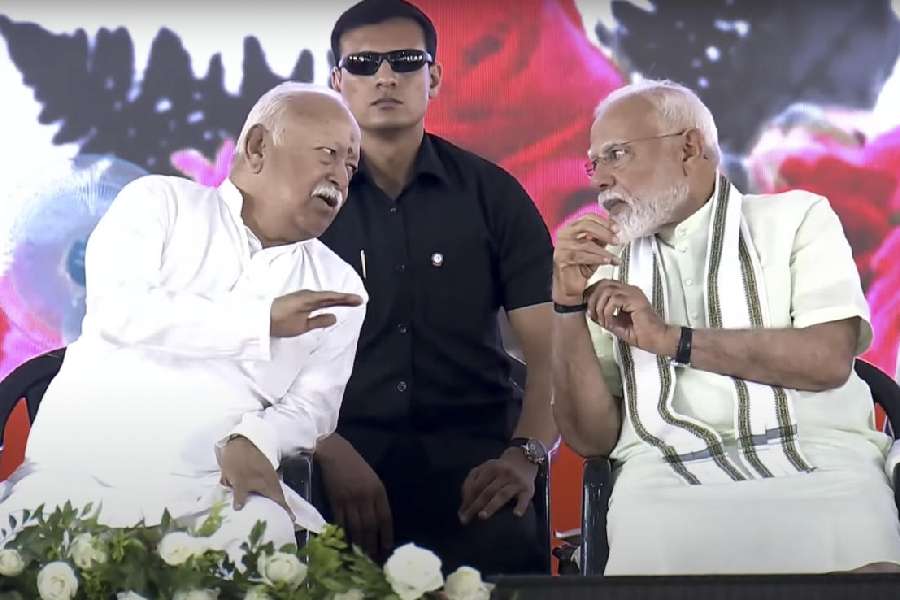Compliments soothe ruffled ties. So the compliments that Narendra Modi lavished on the Rashtriya Swayamsevak Sangh during his maiden visit to the organisation’s headquarters in Nagpur as prime minister did not really come as a surprise. Mr Modi described the RSS as the “akshay vat” of India’s culture. The praise may be pertinent symbolically: Mr Modi, whose party fetched a much diminished tally in the last general election, needs the shelter of the ‘everlasting banyan tree’ — the RSS — from the political storms that may arise in the future. His shower of praise also makes practical sense. The RSS, miffed with the Bharatiya Janata Party’s hubris-driven campaign that banked heavily on Mr Modi’s personality cult during the 2024 election, had, whispers suggest, distanced itself from the campaigning. The BJP, shorn of the RSS’s crucial ground support, ended up losing its majority. In fact, Mohan Bhagwat, the RSS chief, had, without naming him, accused the prime minister of harbouring hubris after the BJP’s reduced electoral harvest. This, though, was not the only bone of contention. Apparently, the RSS believes that Mr Modi has been keen to marginalise the BJP’s ideological parent during his stints as Gujarat chief minister and prime minister. With the crucial election for the BJP president on the horizon and given his somewhat clipped wings, Mr Modi is keen not to upset the RSS. His uncharacteristic placatory approach towards the RSS is an attempt to ensure that the latter does not foist its own candidate as the BJP president. After all, Mr Modi can only function with pliant peers.
Whether the RSS entertains Mr Modi’s plea remains to be seen. This is because traditionally, the RSS, even though it likes to describe itself as an apolitical outfit, has always had the proverbial finger in the BJP’s pie. That way, the ideological and political reins of the saffron fraternity remain in its hands. The BJP’s political ascendancy, in which Mr Modi has played a significant role, led to a rupture in this arrangement with the BJP, buoyed by its electoral dominance, vying for independence from its mother ship: so much so that the outgoing BJP president, J.P. Nadda, had remarked that the party did not need handholding by the sangh parivar. The RSS may be loath to let go of the reins a second time. The subterranean tug-of-war between the RSS and the BJP also punctures the curated image of a happy sangh parivar. Just like any other political ecosystem, the saffron fraternity remains vulnerable to the ebbs and tides of electoral politics.











